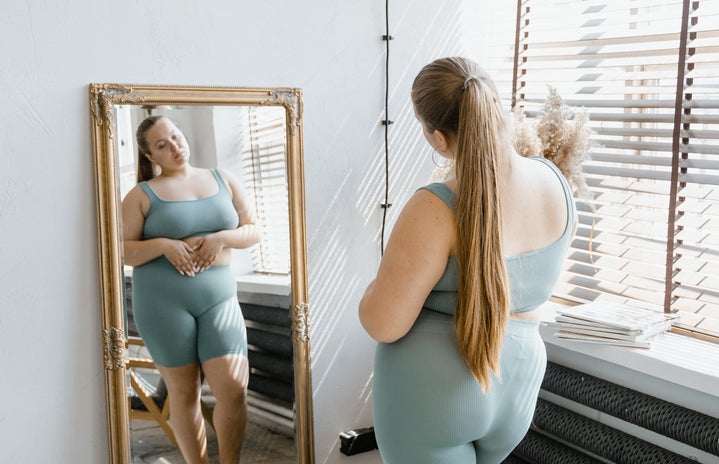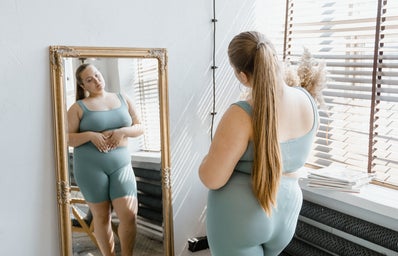I was eight years old the first time someone told me I was fat. I remember my heart sinking into my stomach, my cheeks feeling red and hot. I imagine my younger self, so carefree, suddenly overwhelmed by such intense shame and embarrassment. I was so little; eight years old is far too young to realize that I live in a world where my self-worth is tied to the size of my body.
Today, it should be easy for me to feel confident because there is so much representation of all kinds of bodies. Every post, YouTube video, and celebrity preaches about body positivity. Yet why is it that whenever I hear songs like “Confident” by Demi Lovato or “Good as Hell” by Lizzo, I feel a sense of inadequacy? It is probably because expecting someone to immediately jump from deep self-loathing to unconditional self-love is entirely unrealistic.
The body positivity movement has good intentions but makes moving from feeling insecure to feeling confident seem too easy. It is unrealistic to expect someone to fake it until they make it or wake up one morning and suddenly feel beautiful. When resentment towards my body has been building up for over a decade, simply changing my mindset or saying “I’m beautiful” while looking in the mirror is not going to fix years worth of damage.
I have had meltdowns during shopping trips, stayed home from fun outings with friends because I felt insecure about how I look in my outfit, and even apologized to others when a tummy roll is visible through my clothing. I cannot solve my lack of confidence through body-positive messages, and seeing body-positivity shoved in my face whenever I open my phone only fuels my insecurity by making me feel more insufficient for not being able to accept myself as everyone else can.
Body neutrality is an alternative movement to body positivity that focuses on viewing your body simply for what it is: a body. It is not “beautiful,” “fat,” “skinny,” or “ugly”; it’s just a body that exists. It may not look how you want it to, but it deserves appreciation and respect for all that it does for you. Body neutrality shifts the focus from loving how your body looks to stepping away from hatred towards your body and into gratitude instead.
When I learned about body neutrality and began practicing it, I noticed a change in my thoughts. I no longer ask my friends if I look bad when we get ready to go out. Even if that thought crosses my mind, I let it pass and keep it to myself rather than putting myself down before anyone else can. Looking in the mirror, I do not think negatively as often and frequently feel nothing about my appearance. I have stopped body-checking in the windows of buildings as I walk down the street, which helps keep me present rather than obsessing over how I look. Surprisingly, I have noticed that more positive thoughts pass through my mind.
It is really challenging to look at myself and see an image that I am pleased with, especially when everywhere I turn there are constant images of beauty that I know I can never achieve. Am I totally enamored with myself and happy with how I look? No, but that is okay. I may not feel entirely confident for a while, but practicing body neutrality has taken that pressure away.


